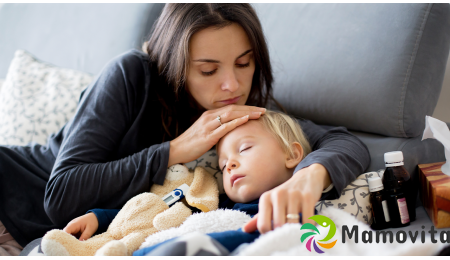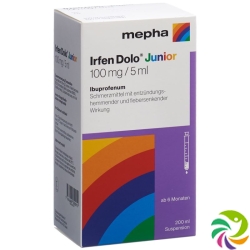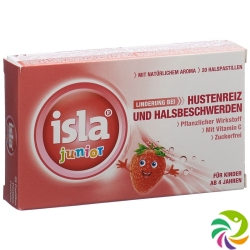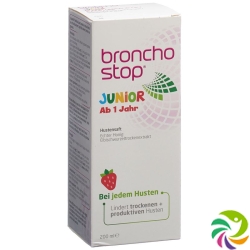Effective Cold and Cough Remedies for Infants and Children's: Safety and Efficacy

Colds and coughs are among the most common illnesses that affect babies and children, regularly inflicting discomfort and fear for parents. These symptoms can be especially severe in younger kids whose immune systems are nonetheless developing. Although colds and coughs are normally mild and depart on their own, locating safe and effective ways to relieve symptoms is critical to your baby's well-being.
Causes of Colds and Coughs
Viral Infections
Most colds and coughs in babies and kids are because of viral infections. Common viruses liable for those symptoms include rhinovirus, that's the primary motive of the common cold, and respiration syncytial virus (RSV), that may result in greater intense respiratory illness, in particular in younger children. These viruses effortlessly unfold through the air when an infected individual coughs or sneezes, or through direct contact with infected surfaces. Once infected, those viruses cause an immune response inside the body, mainly to symptoms which include a runny nose, cough, sneezing, and sore throat.
Environmental factors
Environmental factors also play a significant role in the onset and exacerbation of cold and cough symptoms. For example, cold weather frequently causes humans to spend more time indoors, wherein close touch with others increases the probability of infections spreading. Dry air, whether from heating systems in winter or naturally low humidity, can worsen the airways, making them more prone to infection and causing coughing. In addition, allergens consisting of dust, pollen, and pet dander also irritate the airways, leading to coughing and congestion, even inside the absence of a viral infection.
Using Over-the-Counter Remedies
Cough suppressants and decongestants
When it comes to treating coughs and congestion in babies, it is essential to apply over the counter medicines with caution. For very young children, especially babies under 6 months of age, it's generally advocated to keep away from cough suppressants and decongestants unless recommended by a healthcare professional. The best medicine for cough in infants are regularly now not medicines in any respect, however instead herbal remedies inclusive of humidifiers, saline nasal drops, or gentle suction to clean the nasal passages.
For older babies, such as around 10 months, some pediatricians may recommend a special cough medicine for infants 10 months. These medications are generally formulated with lower doses and are designed to be safe for younger kids. However, it's very important to comply with the dosage commands cautiously and seek advice from a healthcare professional earlier than the use of any remedy.
Means for lowering temperature
Fever is a common symptom of colds and respiratory infections in babies, and in most cases it's the body's natural response to combat infection. Over-the-counter fever reducers, such as acetaminophen or ibuprofen, may be used to reduce fever and relieve soreness. In general, Irfen Dolo Junior is intended mainly for children and has an analgesic, anti inflammatory and antipyretic impact. The tool is appropriate for the treatment of mild to moderate pain (headache, toothache, joint and ligament pain, back ache, ache after injuries),as well as symptomatic treatment of fever.
When selecting a cough medication for infants underneath 6 months of age, it's far crucial to be aware that acetaminophen is commonly preferred, as ibuprofen is not usually advocated for children beneath 6 months of age.
Pastilles and Syrups to Relieve a Sore Throat In Children
When children have a sore throat, it may motivate tremendous soreness and make swallowing hard. Over-the-counter lozenges and syrups can relieve these symptoms, however it's essential to choose the right products to your toddler's age and needs.
Pastilles
Lozenges are commonly used to assuage throat irritation and reduce soreness. However, they're generally not recommended for younger children, particularly children underneath the age of four, because of the threat of suffocation. For older children, lollipops may be a useful way to alleviate a sore throat. They often incorporate components such as honey, menthol, or natural extracts to assist coat the throat and provide transient alleviation from pain and irritation. Isla Junior facilitates cough, sore throat or problem swallowing. The composition contains proven herbal Icelandic moss. It includes mucus that lies on the dry, indignant mucous membranes of the mouth and throat. This permits them to regenerate, protective towards irritation, and for this reason relieves coughs and sore throats. When giving lollipops to children, continually monitor their use and ensure the kid is familiar with the fact that the lollipops ought to dissolve slowly in the mouth without chewing.
Syrups
Another alternative is syrups designed to relieve sore throats, especially for younger children who may not be able to use lollipops. These syrups often include components that coat the throat and reduce inflammation, making it simpler on your child to swallow and speak without pain. Some syrups may additionally comprise mild pain relievers or cough suppressant elements, that can make a sore throat worse.
Bronchostop Junior cough syrup incorporates dry extract of ebisha root and real honey. These additives act on the mucous membrane as a balm and distract foreign particles. Thanks to this, the irritation from coughing is decreased, and the dry, angry mucous membrane can recover.
When to See a Doctor
Although most colds and coughs in children are mild and can be handled at home, it is essential to be aware about the signs which can indicate a greater critical condition or worry. If your toddler has any of the subsequent symptoms, it is very critical to are seeking for on the spot medical attention:
- Persistent high fever: A fever that lasts more than 3 days or a temperature higher than 102°F (39°C), in particular in babies, can also imply a more serious infection that requires clinical evaluation.
- Difficulty respiratory: If your toddler has hassle breathing, wheezing or rapid breathing, it is able to be a sign of a breathing infection along with bronchitis, pneumonia or bronchial asthma.
- Persistent cough: A cough that lasts greater than two weeks or is followed by wheezing or a "whooping cough" sound may be a sign of whooping cough or another respiration contamination that needs remedy.
Disclaimer: The article includes information about effective cold and cough remedies for babies and children and does not constitute medical recommendation. Always seek advice from a pediatrician with any questions about cold and cough treatments for babies and children.



